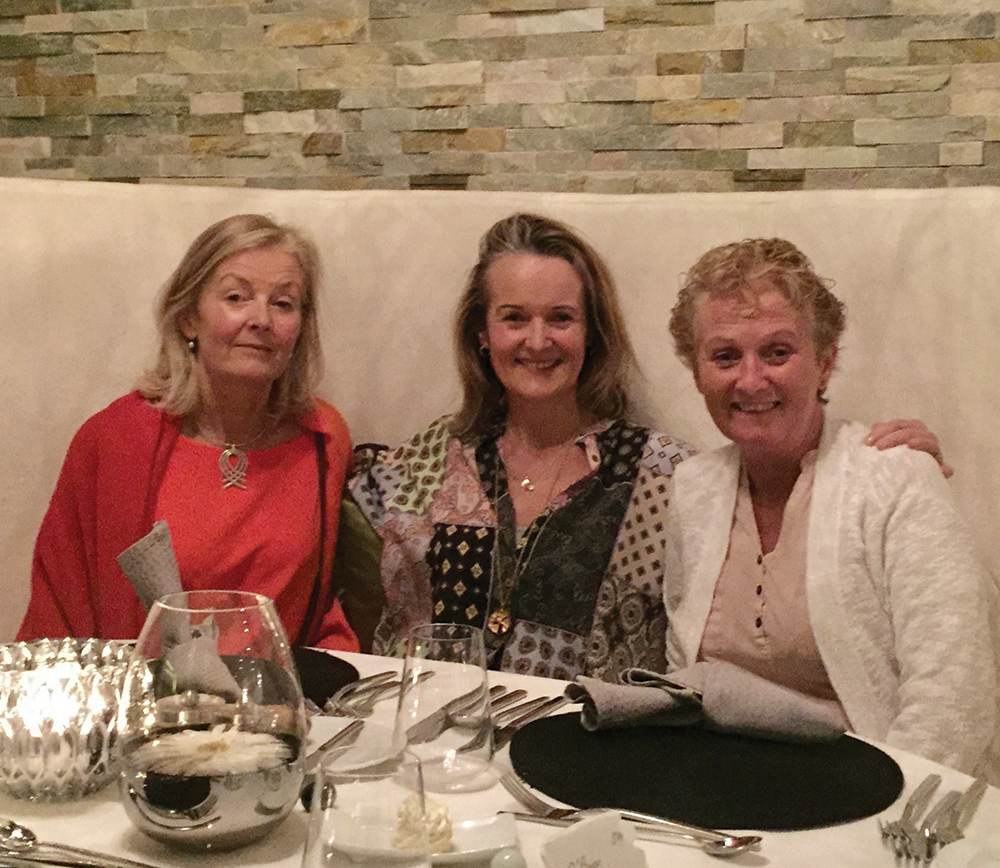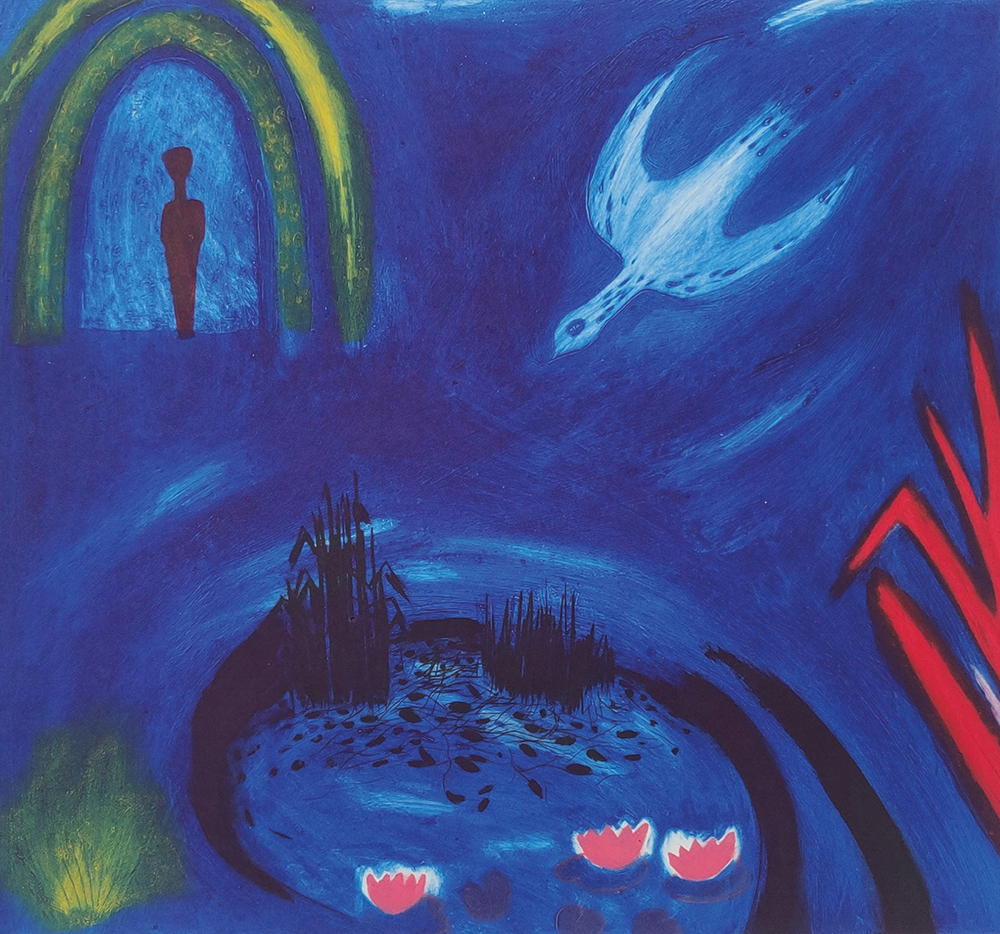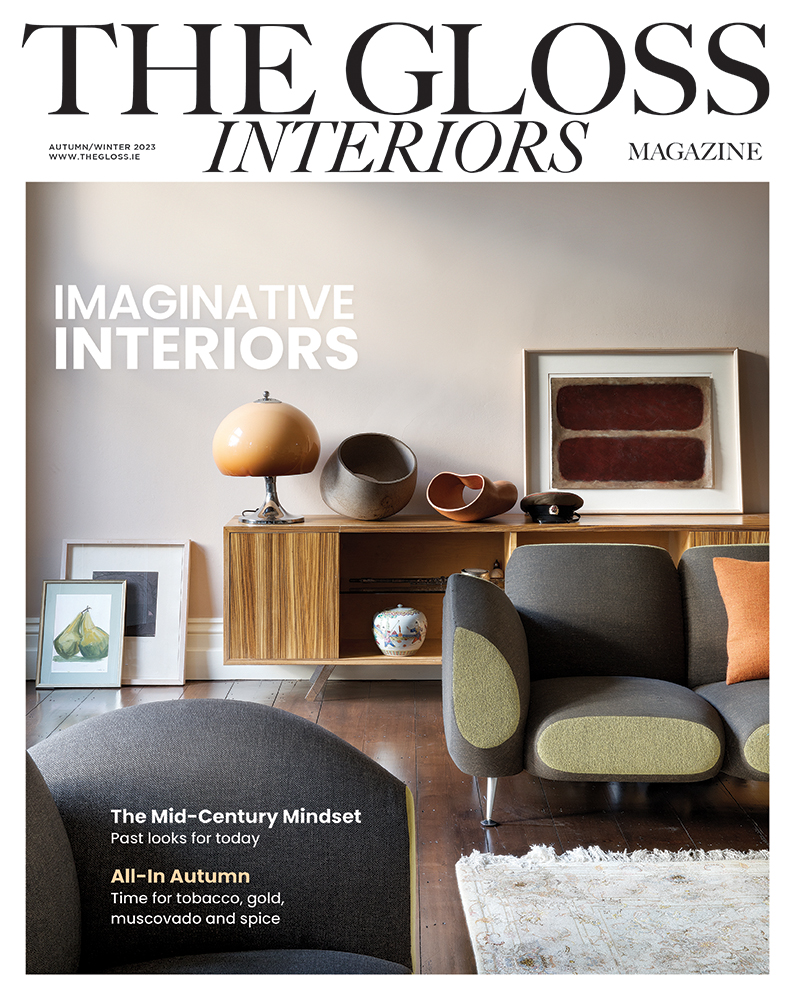With searing honesty, Clare McKenna’s husband, Justin, and her sister, Kate O’Brien, recount their struggle to come to terms with her physical decline and death from motor neurone disease …
A HUSBAND’S STORY
Clare was diagnosed with motor neurone disease in August 2019. She was 65. We were married for 38 years with four children and three beautiful grandchildren (now six). Maybe life then was just too good to be true.
Clare wasn’t surprised. She had been secretly researching her symptoms and suspected the worst. She also knew the odds were against her seeing her 68th birthday and she was right. She died in July of this year. [Clare was a patient at Beaumont Hospital in the care of Professor Orla Hardiman and her team and later at Blackrock Hospice].
I conducted her funeral service in a garden before a selected gathering of family and close friends. We recorded it for online viewing by a wider audience. There were contributions from all who were close to her. We reminisced about Clare, her irrepressible personality, her smile, her gift as a mother, her natural move into grandparenthood, her sportsmanship and how she had touched all our lives. As her husband, the legacy she left me was one strong, united family bound together in love.

Clare and Justin McKenna
Clare was well aware at the time of her diagnosis that I was involved with a small volunteer advocacy group called End of Life Ireland. My work as a probate lawyer, having drafted thousands of wills, included speaking engagements on the subject of preparing for death. I was drawn towards this eclectic group of people because I see a need for a change in the law as it presently applies to assisted death.
Preparing for death begins with a conversation. Very often that conversation takes place in a solicitor’s office and is prompted by a major lifetime event such as a marriage, the birth of a child or the purchase of a house. Each occasion provides the opportunity to ask the question “What happens when I die?” Whether it is a spouse, a child or an asset, provision should be made.
Of course, doing nothing is an option, in which case the law of the land will sort things out but maybe not as one might wish. Later, the solicitor will move the conversation to another level. “What happens if I lose my mental faculties?” Another piece of paper is signed. Not to have an enduring power of attorney in place when dementia comes calling is to risk surrendering control of one’s assets to the State.
Clare and I had these conversations and we had the paperwork to show for it. However, we had never taken these conversations to the next level: “What happens if I have a terminal illness?” There is no legal document in this instance. So, what would the point have been in having the conversation? She preferred to talk about brighter topics anyway.
The Assisted Decision Making (Capacity) Act 2015 provides for advanced healthcare directives, sometimes called living wills. The part of the Act relating to terminal illness is yet to be implemented. When it is, it will be incomplete, because, while it will permit someone to say “Do not attempt resuscitation”, it will not allow us to choose the option of hastening death when it is imminent and life has become intolerable. There is a fine line between palliative sedation and assisted death. The difference is 14 years imprisonment. No doctor should have to bear that prospect.
A Committee on Justice recently reported on the Dying with Dignity Bill and recommended that a special committee be set up to establish the necessary safeguards and regulations to enable legislation. In my view, this must happen within the lifetime of the current administration. The groundwork has been laid. There is a wealth of material available, particularly in Australia and New Zealand, where laws are presently being adopted. It is a universal issue that is currently being addressed the world over. Our legislators should not be found wanting.
Clare lost her power of speech and her ability to swallow many months before she died but her ability to communicate and her acuity were both active and clear to the end. When death was just weeks away, after another terrible choking episode, she wrote on her tablet, “Enough is enough.” She had no choice in the matter.

Trish, Kate and Clare.
A SISTER’S TALE
My beautiful sister Clare passed away in July after a horrific journey with motor neurone disease. She was always fit, healthy and able, but MND mercilessly stripped her of everything in the most brutal way imaginable.
MND, also known as amyotrophic lateral sclerosis (or ALS), affects the nerves in the brain and spinal cord. As the disease progresses, messages from the nerves are disrupted and eventually stop reaching muscles, leading them to stiffen and waste. While there are different variants of this chronic illness, Clare was burdened with the most aggressive, affecting her entire being, from speech and swallow to muscle strength, agility and emotional wellbeing. With no cure in sight, she (and we) knew that time was not on her side.
Being strong and in control was all Clare knew. As well as being primary caregiver for her husband, Justin, four children and four small grandchildren, she also juggled playing competitive golf, tennis (Clare played at international level), voluntary work and afternoons minding her grandchildren. But since her diagnosis just over two years ago, she slowly and unwillingly surrendered her role as loving carer and chief organiser, to one of being cared for and organised.
Throughout this torture, Clare carried on, taking each day as it came. [The family were helped by the palliative team in the Blackrock Hospice. The Homecare Team was also constant in its vigilance]. Although she knew her destiny, she rarely complained and always thanked us for being with her, although at times there was very little we could do. We all so desperately wanted Clare’s suffering and sadness to dissolve, but MND had bigger, more cruel plans in store. To quote author Ruth Fitzmaurice in her compellingly raw memoir, I Found My Tribe: “MND is like water torture, slowly drip-drip-dripping. A tiny nerve ending, a small piece of strength, gets stolen every single day.” This was Clare’s world.
During this time Justin was by her side day and night, except for stints in hospital or a few special days when another sister, Trish, and I whisked her away (albeit very reluctantly at the time). We spent a magical four days at Preidlhof in the south Tyrolean mountains in Austria. Trish and I still speak of it daily – the laughs, the forest walks, the healing therapies, the gin and wine – a real tonic for all our souls. And during these precious moments we caught a glimpse of Clare’s enigmatic smile – a smile that charmed everyone she met. We were due to return last year with Clare’s daughters, Sive and Aifric, but that was not to be. But we are returning soon.
Being a part of Clare’s journey over the past two years has taught me a lot about making the most of this wild and precious life.
When Clare died, thoughtful messages poured in from all corners of the world from the many people touched by her kindness and warmth. These messages continue to keep us all going. One was from Jane Kersal, a Jungian analyst and healer friend. While she didn’t know Clare personally, she is acutely aware of life’s transitions and suggests that, “instead of us humans seeing death as the downer to life, we see it as a permission granted by spirit to leave the body and exit this world. Finally you could be released back from whence you came”. A refreshing outlook and one that gives me hope. Wherever Clare’s vibrant spirit is resting now, my wish is that she is smiling once again and that I will continue to see and feel her close to me in my own life.
Being a part of Clare’s journey over the past two years has taught me a lot about making the most of this wild and precious life. Most of all it has instilled a deep sense of gratitude for my own body which carries me from morning to night, every day, without fail. I am relatively fit. I am able and my body is strong. I am fortunate, I know that. I treasure my newfound appreciation for every part of my physicality. I realise just how capable I am and I know that this could all be gone in an instant.
In my professional role as health and wellbeing writer and educator, I am well aware of the relentless battles around body image and weight, especially among our younger generation, many of whom struggle to accept their bodies, treating them as enemies to be put down and abused. My wish is that others too can be grateful for what they have and treat their magnificent bodies with the kindness and nurturing they deserve.
I will continue to avail of my strength and ability to hike mountains, practice yoga and make the most of the body I was born with, for as long as I possibly can. Why? Simply because I can. @kateobrienwellness

“SPIRIT BIRD” BY CARMEL BENSON AT SO FINE ART EDITIONS
READ … Lynne DM Noble’s The MND Diet. One of several books which provides useful information that can be applied to most neurodegenerative conditions including multiple sclerosis, Parkinson’s disease and dementia. Coffee has been shown to slow down the rate of progression of MND, but why? The answer to this and other questions are revealed.
VOLUNTEER … There are many ways you can get involved in MND research, from filling out a survey to testing a new treatment. People living with MND, their family, carers and healthy volunteers are all needed to help researchers understand the causes and improve diagnosis, care and quality of life of people affected by the disease; www.mndassociation.org. Community volunteers are also needed throughout Ireland to support families. For information, visit: www.imnda.ie.
DONATE TO … The Irish Motor Neurone Disease Association (IMNDA), which hosts many fundraising iniatives and walks throughout the year; www.imnda.ie.
LOVETHEGLOSS.IE?
Sign up to our MAILING LIST now for a roundup of the latest fashion, beauty, interiors and entertaining news from THE GLOSS MAGAZINE’s daily dispatches.









